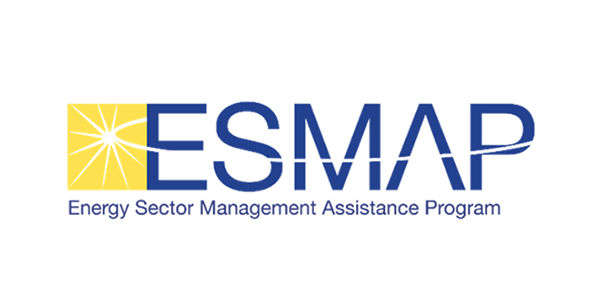
Accelerating Sustainable Energy Transition (ASET)
ASET aims to expand renewable energy generation capacity and strengthen the financial and environmental sustainability of the power sector across the Pacific Island Countries (PICs) such as Papua New Guinea, Solomon Islands, Vanuatu, Fiji, Samoa, and Tonga.
Continue...
The Foreign, Commonwealth and Development Office Post in the Pacific’s contribution to this World’s Bank initiative will fund technical studies and provide targeted technical assistance to inform the development of demonstrator projects. Co-funded by FCDO’s Post in the Pacific through the TEA partnership with ESMAP.
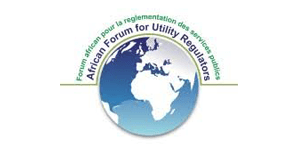
Africa Mini-Grid Electrification Drive (AMGED – AFUR)
AMGED aims to further close the gap between regulators and developers through a series of guidance documents, tools and trainings.
Continue...
This will be done by developing Model Mini-grid Regulation Templates for African Regulators, increasing the number of adopters of the African Forum for Utilities Regulations (AFUR) mini-grid tool, providing training on Policy and Regulatory Landscapes, and providing capacity building on mini-grid principles. Led by AFUR the project was formerly known as MGTS-AR.
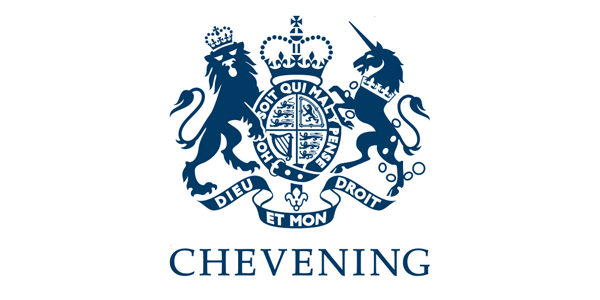
Chevening TEA Scholarship
The Chevening TEA Scholarship supports 30 scholars from sub-Saharan Africa, South/Southeast Asia, and Pacific Island Countries, to pursue energy related research in a one-year Masters course at a UK university.
Continue...
It aims to build a network of emerging leaders within the energy access sector and embed the scholars within the TEA platform.

Clean Energy Access in Remote Pacific Island Communities (CLEARPICS)
CLEARPICS will support energy access across Pacific Islands Countries (PICs) through research into technology applicability, scale and governance within select countries (Papua New Guinea, Solomon Islands and Vanuatu) by undertaking geographically specific research into opportunities for off-grid energy deployment within PICs countries.
Continue...
The project includes five work packages with some delivered across all PICs whereas others will be undertaken on PICs with the poorest electrification rates. Initial analysis will be undertaken with deep dives into regional liaison, market intelligence, mapping current solar market potential and creating an enabling environment are key priority areas for CLEARPICS and pioneer markets such as Fiji will support as a reference case. Led by the Pacific Community (SPC).

Clean Energy Access in Remote Pacific Island Communities (CLEARPICS) Expansion
This expansion of the CLEARPICS programme suports implementation of the Framework for Energy Security and Resilience in the Pacific (FESRIP) 2021–2030, which focuses on advancing priority actions to build an enabling environment for energy transformation across Pacific Island Countries.
Continue...
This includes the development and implementation of robust national energy policies and regulations, targeted capacity-building initiatives, and efforts to address gender imbalances in the energy sector. Delivered by the Pacific Community (SPC) the programme is co-funded by the Foreign, Commonwealth and Development Office (FCDO) Post in the Pacific through the TEA platform
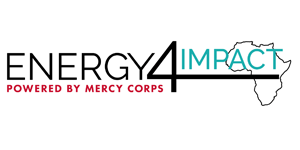
Crowd Power
Crowd Power is a research-led programme designed to explore the role of innovative technology driven financing solutions, such as P2P lending and crowdfunding, in the energy access sector.
Continue...
The programme seeks to understand the impact of innovative forms of capital raising on energy access companies, and the appetite of investors in high-income countries for investment opportunities with environmental and social returns. Led by Energy 4 Impact, a UK-based charity, which supports market driven solutions to clean energy access in off-grid communities in sub-Saharan Africa.

Enabling African Cities for Transformative Energy Access - Uganda Scale-up (ENACTUS)
ENACTUS aims to significantly scale up access to clean cooking services for 6,000 households living in informal settlements within the Greater Kampala Metropolitan Area (GKMA) in Uganda, contributing to improved clean energy access.
Continue...
By facilitating this transition, ENACTUS will reduce greenhouse gas emissions and contribute to the mobilisation of both public and private finance for clean cooking initiatives. The intervention is designed to drive a transformational change in urban clean cooking solutions, promoting long-term sustainability and resilience. The project is funded by the Foreign, Commonwealth and Development Office Post in Uganda to the value of £1m, and it builds on the success generated during the previous phase of work to keep supporting the development of a wider and deeper enabling environment for implementation of public sector enabled, market-led improved and clean cooking access solutions in the GKMA area, while also enhancing the capacity of local and national government authorities for sustainable and scaled implementation of clean cooking interventions.

Enabling African Cities for Transformative Energy Access (ENACT)
ENACT sought to create an enabling environment for implementation of market-led energy access solutions for people in urban informal settlements in sub-Saharan Africa through public-private partnerships.
Continue...
The project focussed upon: public sector capacity building in urban energy data collection and planning; designing, piloting and testing energy access implementation models led by the private sector; and knowledge dissemination for scale-up and replication in urban areas across sub-Saharan Africa. The project implemented activities in Freetown, Sierra Leone, and Kampala, Uganda. Led by ICLEI Africa together with Energy 4 Impact.
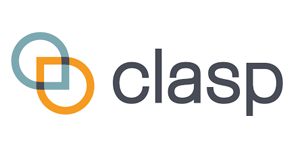
Energy Access Institutions Facility (EAIF)
EAIF aims to raise and provide over $25 million in core funding and targeted technical support to organisations known as market institutions.
Continue...
These institutions have a proven track record and are best placed to scale the energy access sector and deliver clean energy access to millions of people. These institutions are working to grow the distributed renewable energy (DRE) sector. DRE systems are stand-alone, off-grid energy solutions that generate and distribute renewable energy without needing to be connected to the main grid. Expanding this sector has the potential to transform lives and livelihoods by increasing incomes, empowering women, enhancing educational opportunities, improving healthcare, reducing food waste, avoiding greenhouse gas emissions, and much more. Managed by CLASP.

Energy Access Talent Initiative (EATI)
EATI seeks to provide energy access employers with talent to drive sector-wide growth, develop sustainable upskilling and sourcing models to address energy access labour shortages, increase the female participation rate in the energy access supply chain, and develop the next generation of female managers, who provide the operational capacity necessary to drive energy access SME growth.
Continue...
Led by Shortlist and African Management Institute (AMI), this project was formely known as the Off-Grid Talent Initiative.
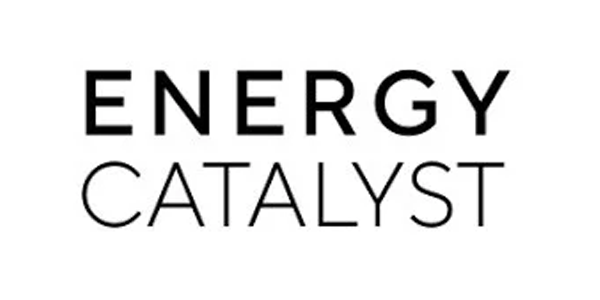
Energy Catalyst
Energy Catalyst accelerates the innovation needed to realise a just and inclusive clean energy transition through financial and advisory support, and by building strategic partnerships and uncovering new insights.
Continue...
Energy Catalyst supports the development of technologies and business models that can improve lives in Africa, Asia and Indo-Pacific regions. Led by Innovate UK.
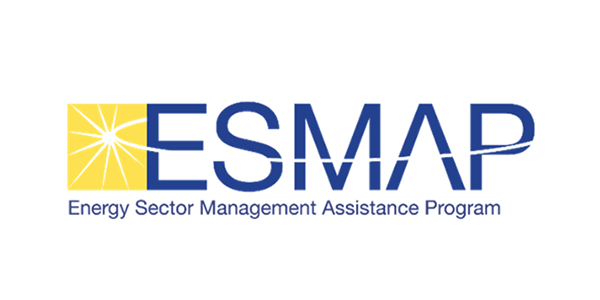
Renewable Energy Investment Facility (REIF)
REIF will catalyse private sector investment in rural renewable energy, as part of the World Bank’s broader Accelerating Sustainable and Clean Energy Access Transformation in Eastern and Southern Africa (ASCENT) programme.
Continue...
ASCENT aims to deliver electricity access to 4 million people across the region. Co-funded by the Foreign, Commonwealth and Development Office (FCDO) Post in Tanzania through the TEA partnership with ESMAP, REIF will use the FCDO´s contribution to expand energy access in underserved areas and promote the productive uses of clean energy.
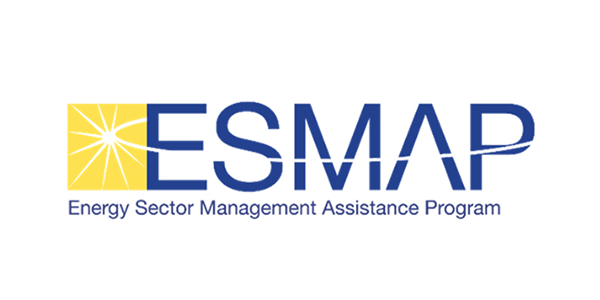
Energy Sector Management Assistance Program (ESMAP)
ESMAP has a diversified agenda, from household energy and clean cooking to national policy reform and integration of cutting-edge clean energy technologies and solutions.
Continue...
For 40 years, this World Bank’s programme has worked with developing and emerging-market countries to solve their energy challenges.

Energy Storage Challenge (ESC)
ESC accelerates the delivery of disruptive battery technologies to provide reliable and sustainable energy in developing and emerging economies with on-grid, significant off-grid, and weak grid populations.
Continue...
It will also provide overall leadership of the Ayrton Challenge on Energy Storage. The project will be delivered through a Research and Development programme to reduce the cost and improve the performance of battery energy storage systems (BESS) technologies for use in developing context.

Enter Energy Somalia – Electrifying Barwaaqo IDP Camp (EES)
EES will provide electricity access for at least 3,000 households and 150 small businesses, leading to improved livelihoods and productivity of an estimated 20,000 internally displaced people living in the Barwaaqo IDP settlement.
Continue...
Enter Energy Somalia (EES) is a Public-Private-Partnership project funded by the Foreign, Commonwealth and Development Office (FCDO) in Somalia to extend the electricity grid to the resettlement area of Barwaaqo and Northern Baidoa.

Global Distributors Collective (GDC)
Led by Practical Action, the Global Distributors Collective (GDC) is a global collective of approximately 200 last mile distributors (LMDs), working to tackle systemic challenges that prevent LMDs from operating sustainably and at scale. By improving LMDs’ business performance, the GDC aims to make life-changing products available and affordable to all.
Continue...
The GDC was founded In 2018, the key roles of the GDC are to help LMDs to improve business performance through solutions and services saving time, reduce costs, build capacity and develop partnerships, and to build a collective voice for the sector by generating and sharing learnings, raising the profile of distributors, and helping the broader ecosystem.
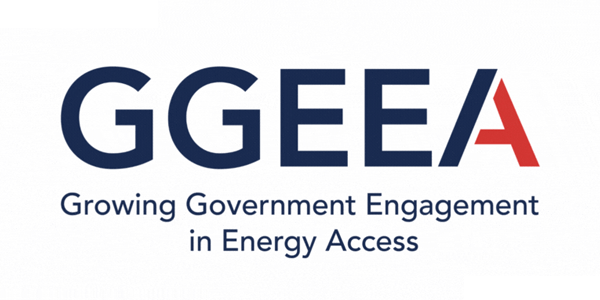
Growing Government Engagement in Energy Access (GGEEA)
GGEEA aims to accelerate the deployment of mini-grids in Africa, increasing the use of affordable decentralised clean energy options for low income households and enterprises in sub-Saharan Africa.
Continue...
This project is the result of a partnership between SouthSouthNorth (SSN) and the African Association for Rural Electrification (CLUB-ER).
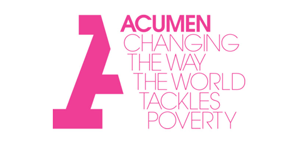
Hardest-to-Reach (H2R) Somalia
H2R Somalia seeks to establish a competitive energy access industry that demonstrates the commercial and operational viability of Somalia’s off-grid sector for the long term, creating lasting pathways out of poverty and driving resilience through energy access.
Continue...
By fostering the growth of decentralised renewable energy companies, H2R Somalia country demonstrator is focused on catalysing Somalia’s nascent energy access market by supporting companies to grow sustainably and deliver first-time energy access to underserved populations. Funded by the Foreign, Commonwealth and Development Office (FCDO) in Somalia.
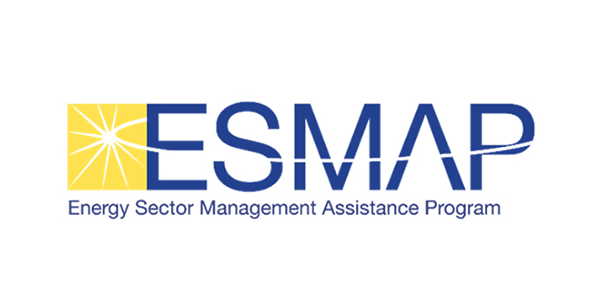
Indonesia Sustainable Least-cost Electrification 2 (ISLE-2)
ISLE-2 aims to provide energy access to 3.5 million people and support the deployment of 540 MW of solar and wind power. It is expected to reduce power generation costs by at least 8% and cut greenhouse gas emissions by 10% across the Kalimantan and Sumatra regions.
Continue...
This World Bank programme includes a dedicated $35 million investment for installing 100 MW of battery storage capacity, to which the Foreign, Commonwealth and Development Office (FCDO) in Indonesia’s contribution is earmarked. In addition, FCDO Indonesia’s funding via TEA is supporting broader ESMAP energy access activities across the country.
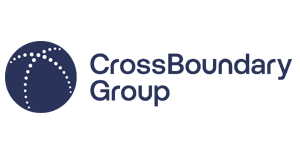
Innovation Lab
Innovation Lab develops new cost-reducing innovations with the potential to significantly reduce the mini-grid levelised cost of energy (LCOE).
Continue...
It seeks to address key barriers hindering the widespread adoption of mini-grids, demonstrate the impact of innovations in the real world and raise funding for the innovations to achieve national scale impact. Led by the CrossBoundary Group.

Low Energy Inclusive Appliances (LEIA)
LEIA is an innovative research, development, and demonstration (RD&D) programme. It seeks to improve the efficiency, performance, availability, and affordability of a range of household, community, and productive use of electrical appliances and solar-powered technologies. Led by Energy Saving Trust.
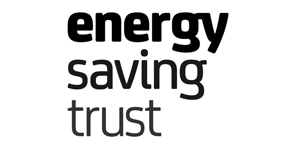
Low Energy Inclusive Appliances- Rwanda (LEIA-R)
LEIA-R country demonstrator seeks to deploy standalone off-grid solar-powered productive use of renewable energy (PURE) appliances in refugee camps and host communities, supporting the Government of Rwanda, development agencies and their procurement officers in selection and deployment of PURE appliances for Rwanda’s refugee settlements, paving the way for PURE appliance distributors to continue operating in these settings.
Continue...
Access to PURE appliances can be a critical strategy for refugees and asylum seekers for increasing incomes, enhancing resilience, reducing demand for firewood, and improving community relations. Rwanda hosts a significant and growing refugee population (over 135,000, as of April 2024). Access to energy for households and small businesses in refugee camp settings is extremely limited, hindering economic opportunities for refugees and exacerbating reliance on ongoing humanitarian support. Funded by the Foreign, Commonwealth and Development Office (FCDO) in Rwanda.

Mini-Grid Funders Group (MGF)
MGF’s objective is to deploy committed funding quickly and effectively to deliver clean energy access to unserved communities via clean energy-based mini-grid electrification.
Continue...
The group also aims to leverage greater levels of private investment and complement national electrification efforts to deliver the low carbon energy transition. MGF was established in 2017, and consists of around 40 sector funders and financiers co-ordinating efforts and sharing lessons. These funders represent a total committed investment of around $2.5bn into mini-grids globally, of which $2.3bn is in Africa. The Funders Group is chaired by the World Bank and the African Development Bank (AfDB), with the Carbon Trust acting as the Secretariat.
minigrids.org
The Mini-Grids Partnership is a consortium of over 250 mini-grid stakeholders interested in coordinating and collaborating in discrete but related initiatives, from both the public and private sector. Funded in 2014 under the auspices of Sustainable Energy for All, it is part of the MGF.

Pioneer Energy Investing Initiative: Powering livelihoods using solar (PEII+)
PEII+ will invest in companies providing renewable energy-powered appliances to micro-entrepreneurs and smallholder farmers, aiming to empower communities, drive economic development, and contribute to a more sustainable and equitable energy future.
Continue...
Key features include a focus on productive use, early-stage investment, partnerships, and capacity building. Led by Acumen.

Powering Healthcare
Powering Healthcare aims to break down sector-wide, systemic barriers that impede wide-scale deployment of quality energy solutions for health centres and clinics in developing countries.
Continue...
The Powering Healthcare Hub is a solutions-driven, one-stop-shop to provide data, best practices, support and leadership for the electrification of health facilities in energy-deficit countries. Led by Sustainable Energy For All (SEforAll).

Powering Renewable Energy Opportunities (PREO)
PREO is a demand-led, productive-use-of-renewable-energy (PURE) programme that stimulates partnerships, innovation and learning sharing to address the needs and improve the livelihoods of communities in sub-Saharan Africa, Asia and the Pacific Island Countries. Delivered by the Carbon Trust and Mercy Corps Energy for Impact.
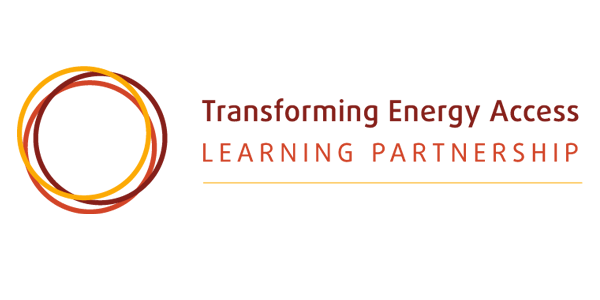
TEA-Learning Partnership (TEA-LP)
TEA-LP is a partnership of universities committed to delivering professional graduates ready to drive the transition to sustainable energy access for all.
Continue...
TEA-LP provides courses for local, current and future, professionals in the energy access sector and aims to build on a network of higher education institutions and make linkages to other energy access organisations and the private sector. Led by the University of Cape Town (UCT).

TEA@SUNRISE
TEA@SUNRISE seeks to support countries in Africa, Asia and the Indo-Pacific to increase the scale of local production of sustainable solar photovoltaics (PV), building on the pre-existing SUNRISE network.
Continue...
It is a collaboration, led by Swansea University, between universities and businesses across the UK and select countries in Africa, Asia, and the Indo-Pacific.

Transforming Humanitarian Energy Access (THEA)
THEA will build an evidence base to support the advocacy for the adoption of replicable and scalable delivery models on humanitarian energy along a spectrum of market-readiness.
Continue...
The long-term aim is to ensure that no one is left behind in displacement settings in the transition to sustainable energy solutions. THEA is led by a consortium led by Mercy Corps, along with the Global Platform for Action and Ashden.

Transforming Inclusive Energy Markets (TIME)
TIME accelerates the impact of pioneering enterprises and enabling intermediaries. Taking an “ecosystem” approach, it offers catalytic capital, combined with venture and market building support, to enable enterprises to progress from grant/repayable grant through to concessionary financing, and ultimately to commercial capital. Led by Shell Foundation.

Zero Emission Generators (ZE-Gen)
Zero Emission Generators (ZE-Gen) is a collaborative, cross-sector initiative to tackle sector barriers and accelerate innovation to build a thriving, competitive market for renewable energy-based alternatives to fossil fuel generators.